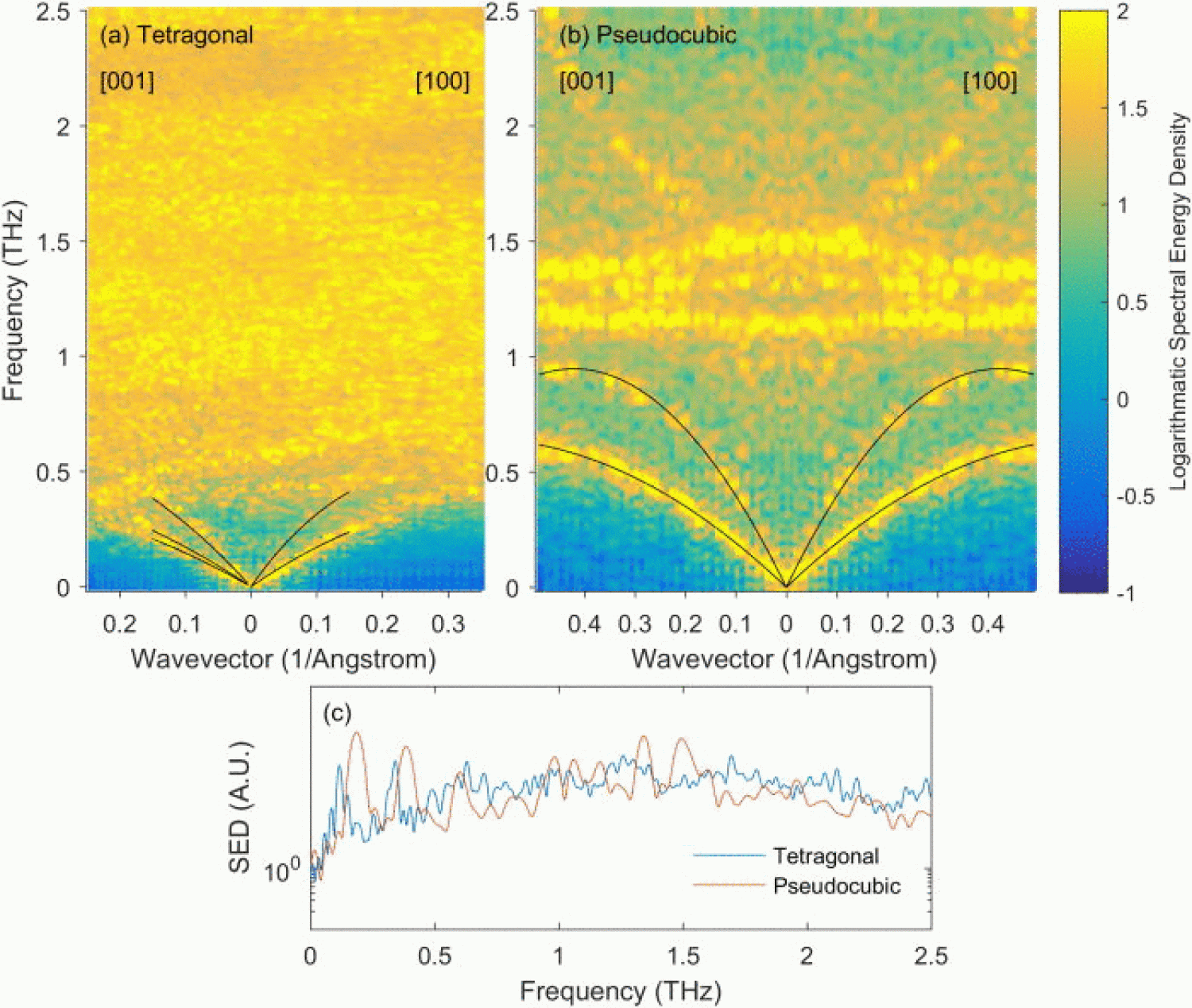MechE Paper is a Top 10 Most Cited Article in Applied Physics Letters for 2016
A CU Boulder mechanical engineering team is earning accolades for their solar materials research.
The journal Applied Physics Letters is highlighting professor Ronggui Yang and two of his PhD students, Xin Qian and Xiaokun Gu, for their study of a hybrid organic-inorganic material that has green energy applications. A paper the trio wrote on the topic has been recognized by Applied Physics Letters as one of the journal’s Top 10 Most Cited Articles published in 2016.
The study focused on hybrid perovskite crystal. What is that, you might ask?
"It's a promising high-efficiency, but low cost solar cell material. However, heat dissipation and reliability has been an issue," Yang says.
Researchers have also struggled just to create good computer models showing what the crystal is doing at an atomic level when it is exposed to heat.
"Modeling thermal transport in organic-inorganic materials has been very challenging due to their structural complexity," Qian says.
It will not be anymore. Using CU Boulder’s Janus supercomputer, they were able to solve the modeling issue by developing a new simulation method that integrates quantum mechanics simulation with classical Newtonian mechanics of atoms known as molecular dynamics. Their approach also has applications to model thermal conductivity in other complex material systems beyond hybrid perovskites.
Department of Mechanical Engineering Chair professor Mike Hannigan says the citations received by Yang and his team shows how their work at CU Boulder has impact far beyond Colorado.
“It shows he’s doing impactful research at a fundamental level. His work is well received by the academic community as excellent and prolific,” Hannigan says.
If you would like to know more, the paper, titled Lattice thermal conductivity of organic-inorganic hybrid perovskite CH3NH3PbI3is available for download from the American Institute of Physics.


